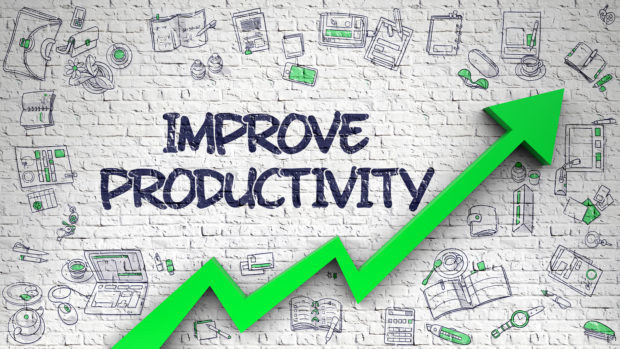6 Ideas for Managing and Improving Employee Performance

Managing employee performance is a critical aspect of running a business, whether big or small. How well employees perform their tasks determines how fast you meet your business objectives. Any drop in performance can affect your revenue and your credibility. Poor performance is associated with low motivation, low morale, and high turnover. In any group, the slowest individual sets the pace. Measuring performance is thus imperative in any professional or business environment.
Here are six ideas for managing and improving employee performance.
Set Clear, Measurable Goals
A significant factor that contributes to poor performance is confusion. If employees are confused about their tasks or do not understand the end goal of their work, they will not be able to complete their work efficiently.
Define roles and responsibilities and set clear, measurable goals to avoid any confusion in the workplace. Knowing specifically what they have to achieve helps employees hold themselves accountable. Moreover, it also increases their motivation because they have something specific to work towards.
Track Employee Time
Another idea that can benefit managers and companies of all sizes is to use a time management tool to track employee time. In a business context, time is a valuable commodity. By managing time effectively, you are essentially controlling performance.
Time tracking software is one of the most effective tools for driving performance in the workplace. Keeping track of work done is a clear and transparent process. Moreover, you get detailed reports that can answer many important questions related to your project. Are you staying on budget? Is your team able to meet expectations? Should you hire another employee?
Tracking employee time with a dedicated tool is the best way to increase productivity while reducing administrative costs.
Encourage Honest Communication
Employee performance depends on many factors such as workplace environment, team cohesion, skills and aptitudes, intrinsic motivation, and not only. Personal issues such as health conditions or family concerns can also affect a person’s ability to perform at their best in the workplace.
An effective way to manage and improve employee performance is to encourage honest communication. Employees should feel comfortable disclosing problems instead of feeling guilty for not meeting specific performance metrics. Clear and honest communications from both sides can eliminate many performance obstacles.
In some cases, employees may not even be aware that their performance doesn’t meet expectations. Thus, maintaining a line of constant communication can prove highly beneficial for all sides.
Provide Growth Opportunities
Another excellent way to manage and improve performance in the workplace is to give your employees opportunities to grow. Every individual has personal and professional limits impossible to surpass even with the best intentions. The only way to go beyond our limits is to acquire additional knowledge and develop new skills.
Managers can boost employee performance through coaching or training sessions, courses, or access to online learning platforms. Any resource or tool that gives employees the chance to learn something new is valuable. Professional development is an ongoing process, so encouraging your employees to embrace lifelong learning can benefit your business in many ways.
Give employees the chance to make independent decisions and let them discover self-management practices. When they feel empowered, they also feel more engaged with their work.
Provide Ongoing, Real-Time Feedback
In many large companies, biannual or annual reviews are the only form of feedback that employees receive. However, this performance management practice is not necessarily productive. Waiting for the next review to correct performance drops is not a good idea. The company loses money if the productivity level is unstable.
Providing ongoing, real-time feedback is one of the best ways to manage employee performance. Real-time feedback brings immediate results. Moreover, a manager giving feedback during or immediately after a project can contextualize problems and solutions.
Use Numbers
Another way to boost performance is to make sure your employees are aware of the financial implications of their duties and tasks. Discuss budgets and costs with your team. Do they know what the company stands to win or lose, depending on their performance?
Performance transforms into revenue and revenue into earnings. Having a clear understanding of what their output is worth in financial terms may increase employee motivation.
Final Words
Use our performance management strategies to become a better leader, increase team motivation, reduce costs, and reach your business objectives. Performance is a quantifiable value. Your company can benefit immensely from taking a proactive approach to employee performance and productivity. Find the tools and methods that work for your team.

